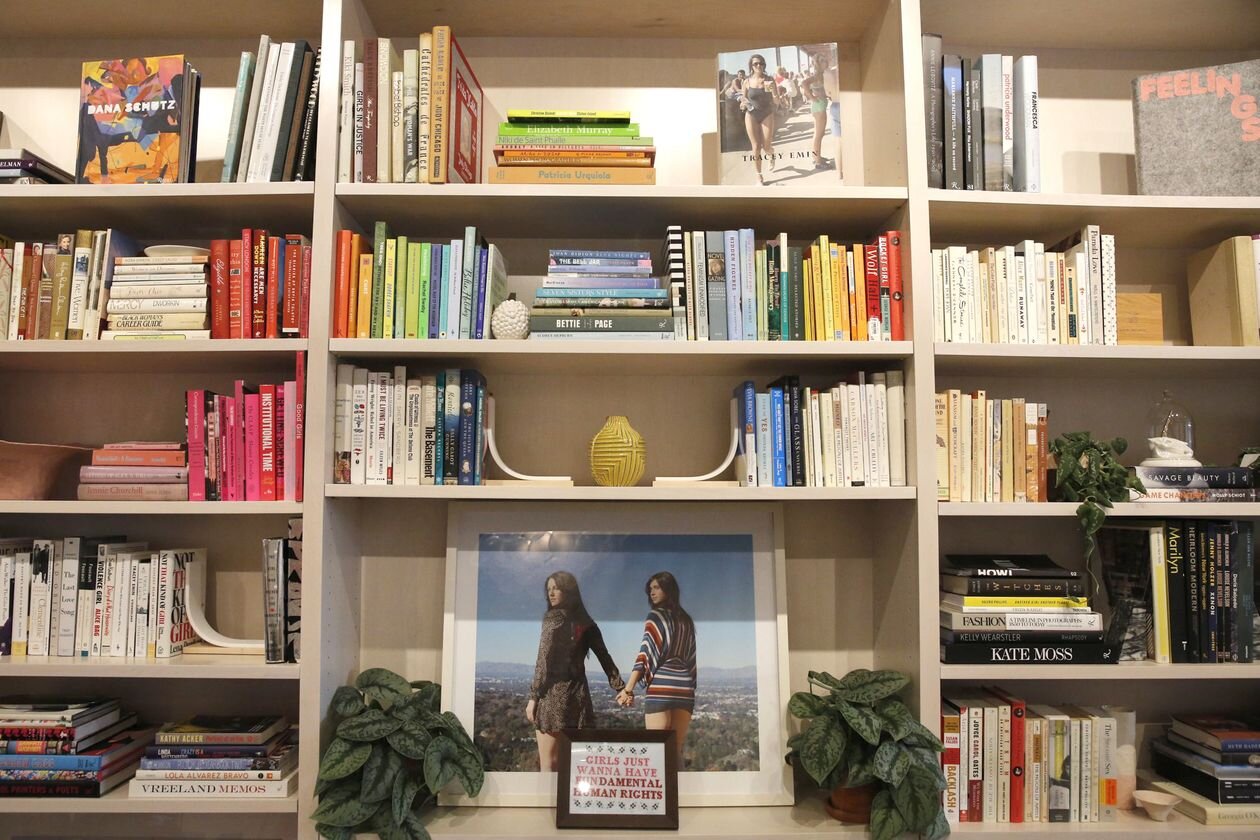The Wing won fame with its message of inclusion and empowerment for women. Here, books by women or about women sit on shelves in a library at a Wing location in Chelsea, Manhattan.
PHOTO: ELIZABETH SHAFIROFF FOR THE WALL STREET JOURNAL
The Wing was riding high early last year. The network of women-focused clubs and co-working spaces was rolling out new locations around the U.S. and had secured new funding led by venture-capital powerhouse Sequoia Capital.
Today, the company is reeling, a casualty of both the coronavirus pandemic and, before that, the enormous challenges for a business built on ideals trying to live up to its aspirations.
The nearly four-year-old company, which has raised $118 million from backers, cited the pandemic’s impact in announcing this month that it was laying off or furloughing most of its staff. A spokeswoman later said this included all employees and managers working in Wing spaces in the U.S. and half of those working at headquarters. The Wing went from around 475 active employees to 84.
In addition to closing its 11 locations, it suspended member dues. The company, which has boasted over 12,000 members paying at least $2,100 a year, lost 95% of its revenue overnight. Asked if the Wing is getting breaks on its rent, the spokeswoman said it is working with its landlords and declined to elaborate.
Co-founders Audrey Gelman and Lauren Kassan said they still hope to reopen as soon as possible.
“We’ll be back. And we’ll be better,” they wrote in a blog post announcing the furloughs and layoffs, noting that the Wing would continue to engage members online.
When it reopens, the company’s co-founders will need to recover from the virus’s blow—and face complexities that were buffeting the business before the world was upended.
Compounding its pre-virus challenges was WeWork; the troubled co-working company, an early investor, sold its Wing stake in January at a reduced valuation, according to news reports of the sale at the time. The Wing spokeswoman declined to comment. A WeWork representative confirmed the sale but didn’t comment further.
Kara Nortman, a partner with venture-capital firm Upfront Ventures, which is a Wing investor, said the company has “a strong balance sheet and is well-positioned to come out of this crisis stronger,” noting that the founders had made tough decisions.
The Wing won fame with its message of inclusion and empowerment for women, marketing itself as a female version of the boys’ club. Its values—pro-pay equity, anti-“manspreading”—appealed to a wide swath of women who filled waitlists for membership, and its modern spaces were featured in design and fashion magazines. Investors included Serena Williams, and among its event speakers were Hillary Clinton and Jennifer Lawrence.


